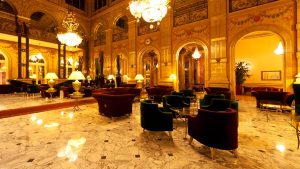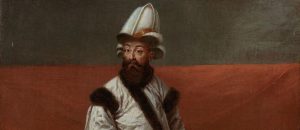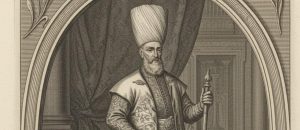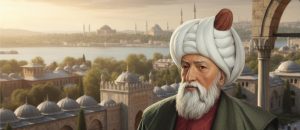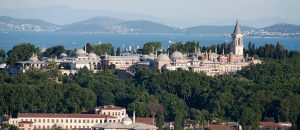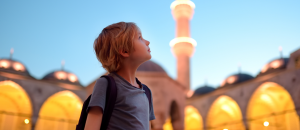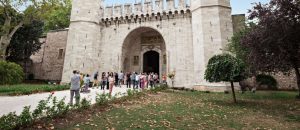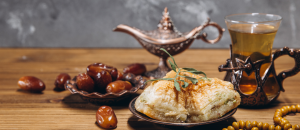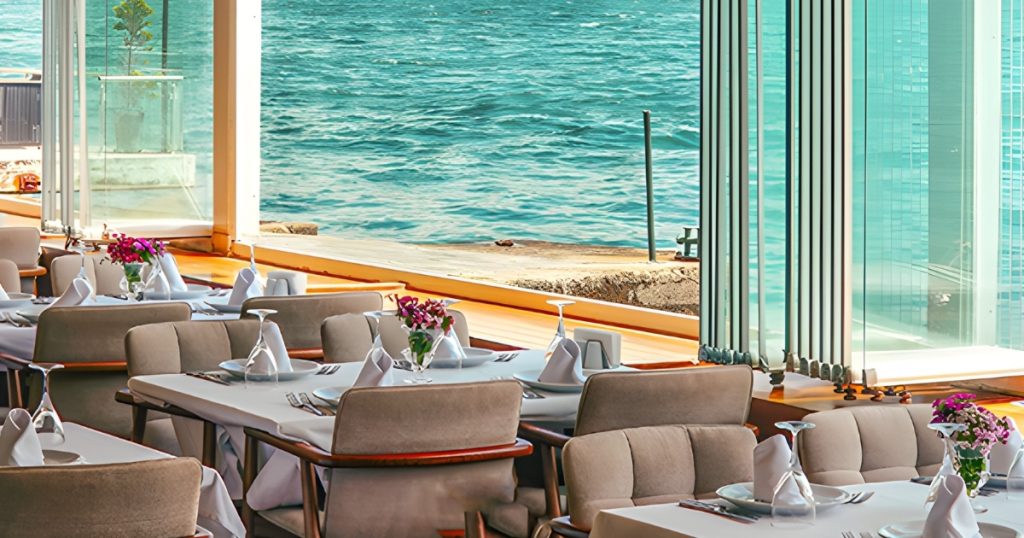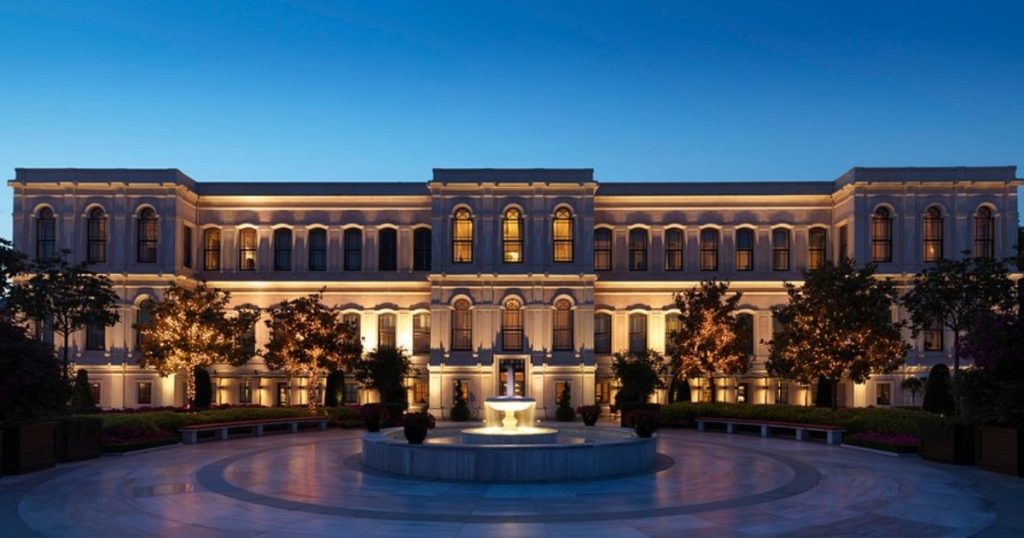The 16th century, the most brilliant era of the Ottoman Empire, is a stage not only for conquests and victories but also for unforgettable human stories where ambition, genius, and tragedy are intertwined. At the center of this stage, behind the magnificent walls of Topkapi Palace, stands a man who rose in the shadow of a world-conquering sultan and ultimately fell in that same shadow: Pargalı Ibrahim Pasha. Pargalı Ibrahim Pasha’s life is a breathtaking story of a slave reaching the highest possible office, that of Grand Vizier (Sadrazamlık), manipulating an empire, and ultimately becoming a victim of the very power he wielded. While “Makbul” (the Favored One), he was the sultan’s brother; when “Maktul” (the Executed One), he was a cautionary tale, silently strangled in the dark corridors of the palace. In this article, we will follow his footsteps from Parga to the palace, his passion for art, his power games, and his tragic end.
From Parga to the Palace: The Incredible Ascent of a Slave to Grand Vizierate
Like every great story, Ibrahim of Parga’s tale has humble beginnings. Believed to have been born the son of a fisherman in the town of Parga, now within the borders of Greece, Ibrahim was kidnapped by pirates at a young age and sold into slavery. By a twist of fate, he entered the service of young Prince Süleyman (the future Sultan Süleyman the Magnificent), who was then a provincial governor in Manisa. This encounter marked the first step of a friendship that would change the destiny not only of two young men but also of an empire.
Ibrahim was not only a handsome and intelligent young man but also highly talented. He spoke many languages fluently, charmed everyone by playing the violin, and possessed extensive historical knowledge. These qualities deeply impressed Süleyman, who was an intellectual prince with a penchant for art. A bond of confidant and brotherhood quickly formed between them, going beyond a mere servant-master relationship. When Prince Süleyman ascended to the throne in 1520, Ibrahim was the most trusted person by his side, and he brought him along to Topkapi Palace, the heart of the empire.
The Sultan’s Brother, The Empire’s Second Man: His Unique Friendship with Süleyman the Magnificent
Sultan Süleyman the Magnificent, after ascending the throne, demonstrated his trust and affection for Ibrahim in an unprecedented manner. He first appointed him to an important position such as Hasodabaşı (Head of the Sultan’s private servants). However, Ibrahim’s rise was dizzying. In 1523, at the young age of 28, he was appointed to the highest office of the empire, the Grand Vizierate, bypassing all customs and seniority rankings. This was an unprecedented situation in the history of Grand Viziership in the Ottoman Empire and completely upset the balance in the palace.
Süleyman not only granted him administrative powers. He also bestowed upon Ibrahim Pasha the title of “Serasker Sultan,” giving him the authority to make decisions on his own behalf and command the army as commander-in-chief. This meant the Sultan delegated a part of his absolute authority. This unique friendship reached its peak when Süleyman married his sister, Hatice Sultan, to Ibrahim Pasha. Ibrahim was now not just a Grand Vizier but also a son-in-law of the dynasty (“Damat Ibrahim Pasha”). His magnificent palace in Atmeydanı (today’s Sultanahmet Square) was a concrete symbol of the power and wealth he had attained. He dined with Süleyman, hunted with him, and shared the most intimate state secrets. Ibrahim was now the second man of the empire.
More Than a Statesman: His Passion for Art and Western Culture
One of the most important features that distinguished Pargalı Ibrahim Pasha from other Grand Viziers was that he was not only a soldier and diplomat but also a Renaissance man with a deep interest in art and Western culture. He believed that the empire’s power needed to be strengthened not only by the sword but also by art and diplomacy. His close relations with Venetian ambassadors provided him with the opportunity to get to know the Western world intimately.
The most known example of this passion is the three bronze statues he brought from Buda (Budapest) after the Battle of Mohaç in 1526. Erecting these statues, representing Hercules, Apollo, and Diana, in front of his palace caused great astonishment and debate in the Ottoman capital at the time. Due to the prohibition of imagery in Islam, these statues were considered “idols” by some circles and led to whispers that Ibrahim Pasha had “Frankish” tendencies. This event was also an indication of how brave, innovative, and at the same time, how reckless he could be. His fondness for art made him a great collector and patron of the arts.
Enemies in the Palace: His Rivalry with Hürrem Sultan that Prepared His End
As Ibrahim Pasha’s power grew, so did the number of his enemies in the palace. However, his biggest and most dangerous rival was Hürrem Sultan, Süleyman’s legally married wife and the mother of his children. Hürrem Sultan was an intelligent and ambitious woman who tried to turn all power centers in the palace to her advantage to enthrone her own sons. Ibrahim Pasha, on the other hand, supported Prince Mustafa (son of Mahidevran Sultan), Süleyman’s eldest son and heir apparent. This situation plunged the two into an inevitable power struggle.
Power games in Topkapi Palace usually proceeded silently and subtly. Hürrem Sultan tried to undermine Ibrahim Pasha’s position in the Sultan’s eyes by whispering into his ear about his increasing arrogance, his admiration for the West, and some controversial decisions he made. Events such as Ibrahim Pasha’s execution of Defterdar İskender Çelebi during the Persian campaign provided Hürrem Sultan with the opportunities she sought. While Ibrahim saw Hürrem as a danger that broke the traditions of the dynasty, Hürrem saw Ibrahim as the biggest obstacle to her own future and that of her children. This deadly rivalry would ultimately result in one of them losing.
From “Makbul” to “Maktul”: The Path from the Pinnacle of Power to a Tragic End
It was not a single event that led to Pargalı Ibrahim Pasha’s demise, but a combination of accumulated mistakes, increasing arrogance, and Hürrem Sultan’s relentless intrigues. The unlimited authority granted to him by the Sultan gradually intoxicated Ibrahim. His statements to foreign ambassadors, referring to himself with expressions like “I am the one who governs the state,” and even using the title “Serasker Sultan” in an agreement, were interpreted as him sharing the Sultan’s authority. This was an unforgivable sin for a sultan.
Sultan Süleyman the Magnificent had promised lifelong immunity to Ibrahim, whom he considered his closest friend and “brother”. However, the survival of the state and his own absolute authority came before everything else. According to legend, he found a way to break this oath with a fatwa (religious edict) obtained from the Sheikh al-Islam: Ibrahim would be killed while Süleyman “slept”. On the night of March 15, 1536, during the month of Ramadan, after breaking his fast with the Sultan at Topkapi Palace, he was strangled to death by the palace’s mute executioners while sleeping in his assigned room. The next morning, the doors of his magnificent palace in Atmeydanı were closed, and the lifeless body of the empire’s second man was silently removed from the palace. “Makbul” (the Favored) Ibrahim Pasha had become “Maktul” (the Executed) Ibrahim Pasha.
Whispers in the Palace Corridors: Pargalı Ibrahim Pasha’s Legacy and Debates About Him
The death of Pargalı Ibrahim Pasha marked a turning point in Ottoman history. His execution is remembered as one of the events Süleyman the Magnificent regretted most throughout his life. After Ibrahim, a Grand Vizier as talented and powerful as he was did not emerge for a long time, and Hürrem Sultan’s influence in the palace became absolute.
Today, Pargalı Ibrahim Pasha’s life is still debated among historians. Was he an arrogant statesman corrupted by power? Or was he a genius who fell victim to palace intrigues and a woman’s ambition? Probably a bit of both. His legacy is a tragic story that reminds us how temporary and dangerous power can be, and how even the brightest stars can fade in one night. Walking through the corridors of the Turkish and Islamic Arts Museum in Sultanahmet today, which was once his palace, it is still possible to hear whispers of his passion for art, his power, and his tragic end.
Visit our comprehensive travel guides at destinationturkey.tr to explore Topkapi Palace and other cultural treasures of Istanbul.
Tags: Pargalı Ibrahim Pasha, Süleyman the Magnificent, Hürrem Sultan, Ottoman Grand Viziers, Topkapi Palace, Makbul Ibrahim Pasha, Ottoman History, Hatice Sultan, Power Games

